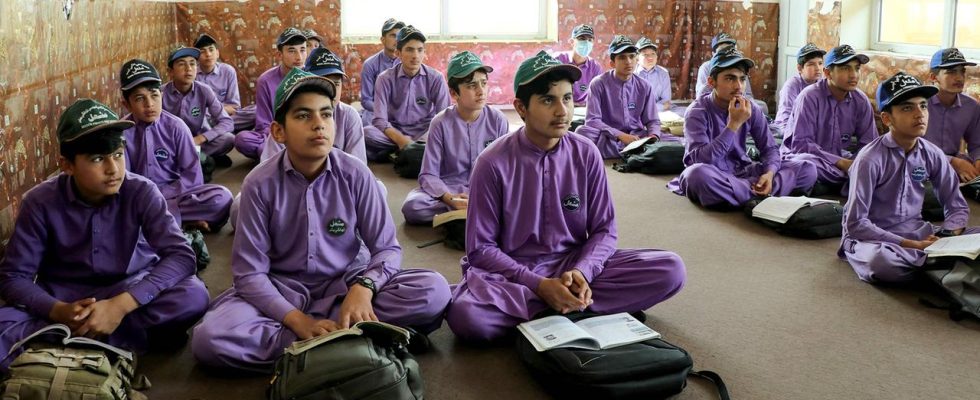The new school year has begun in Afghanistan – for the third year in a row without older girls. They are prohibited from attending secondary schools. And the radical Islamic Taliban give no hope of changing that.
The new school year has begun in Afghanistan – but classes for older girls have remained closed for the third year in a row. Under the ruling Islamist Taliban, education for girls from the seventh grade onwards is still prohibited.
In some parts of the country, women and girls older than 12 still attend religious, midwifery, and nursing schools. According to the UN children’s fund UNICEF, one million girls in the country are affected by the school ban. Afghanistan is the only country in the world that prohibits girls from attending school after primary school.
No end to that ban on education foreseeable
There is no change in sight: At an official ceremony to mark the start of school, the Taliban Education Minister Habibullah Agha announced that he wanted to increase the quality of education in the country. He ruled out a possible opening of schools for girls.
In the past, the Taliban had promised that they would only suspend education for older girls until unspecified conditions were created. The public statements made by a few high-ranking Taliban in favor of women’s education have recently given hope. But so far nothing has been done in this direction.
Marriage is the only way out
15-year-old Furusan from the western Afghan city of Herat no longer believes that public schools will be open to older girls as long as the Taliban are in power. “I wanted to study law and defend the rights of women in my country,” she told the dpa news agency.
She is currently taking online courses, but hopes to be able to resume official state training soon. Otherwise she fears that she will have to get married, which would mean an end to her dreams.
UN speaks of “gender apartheid”
When they came to power again in August 2021, the radical Islamic Taliban initially announced that they would be less harsh than during their first rule from 1996 to 2001. Since then, however, the militia has become increasingly radical.
Women and girls are hit by the brunt of the restrictions, leading the United Nations to speak of “gender apartheid”. The new academic year also recently began at state universities – but women have no longer been allowed to attend since December 2022. UNICEF has now warned of a serious shortage of qualified women in various areas such as health and education.

